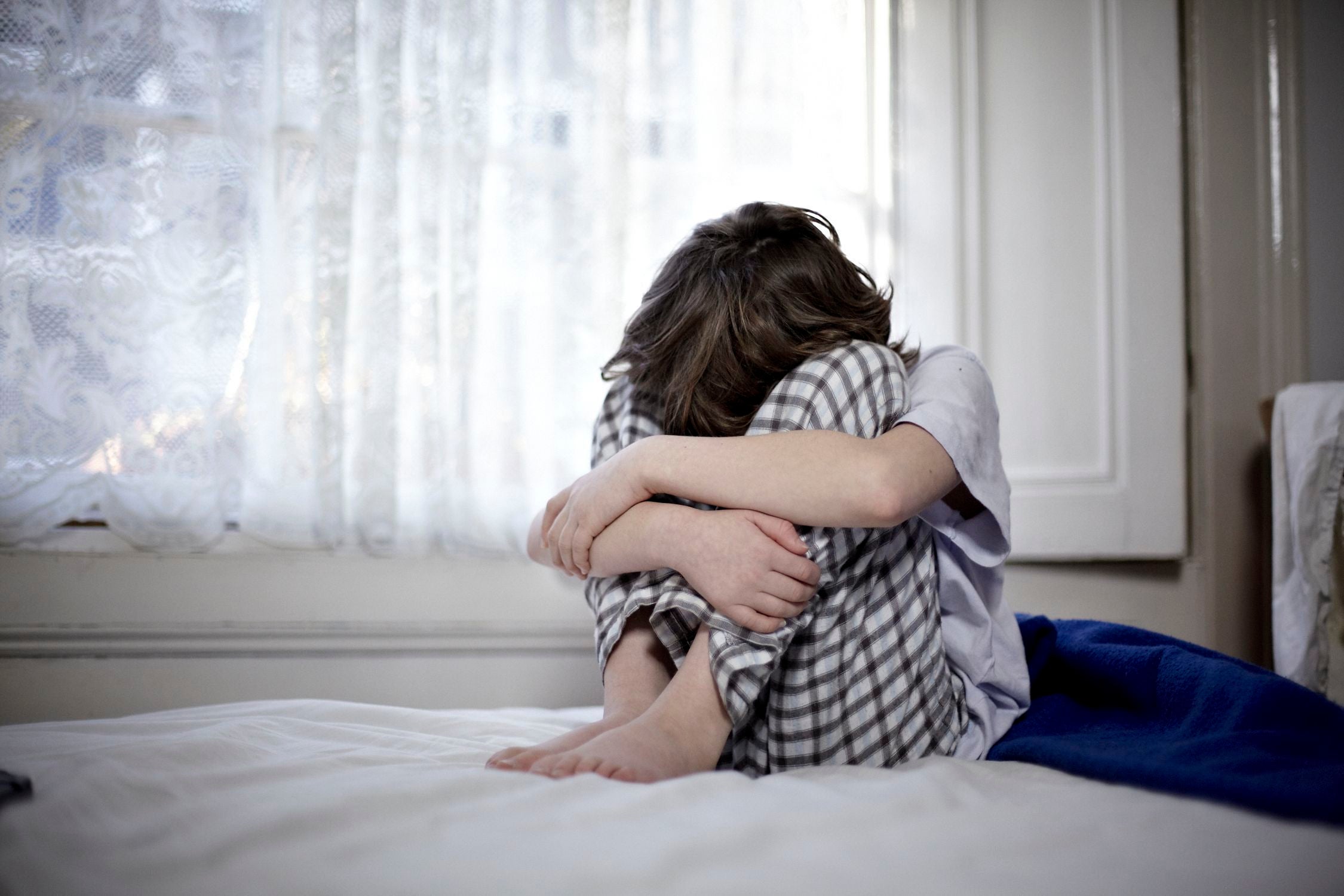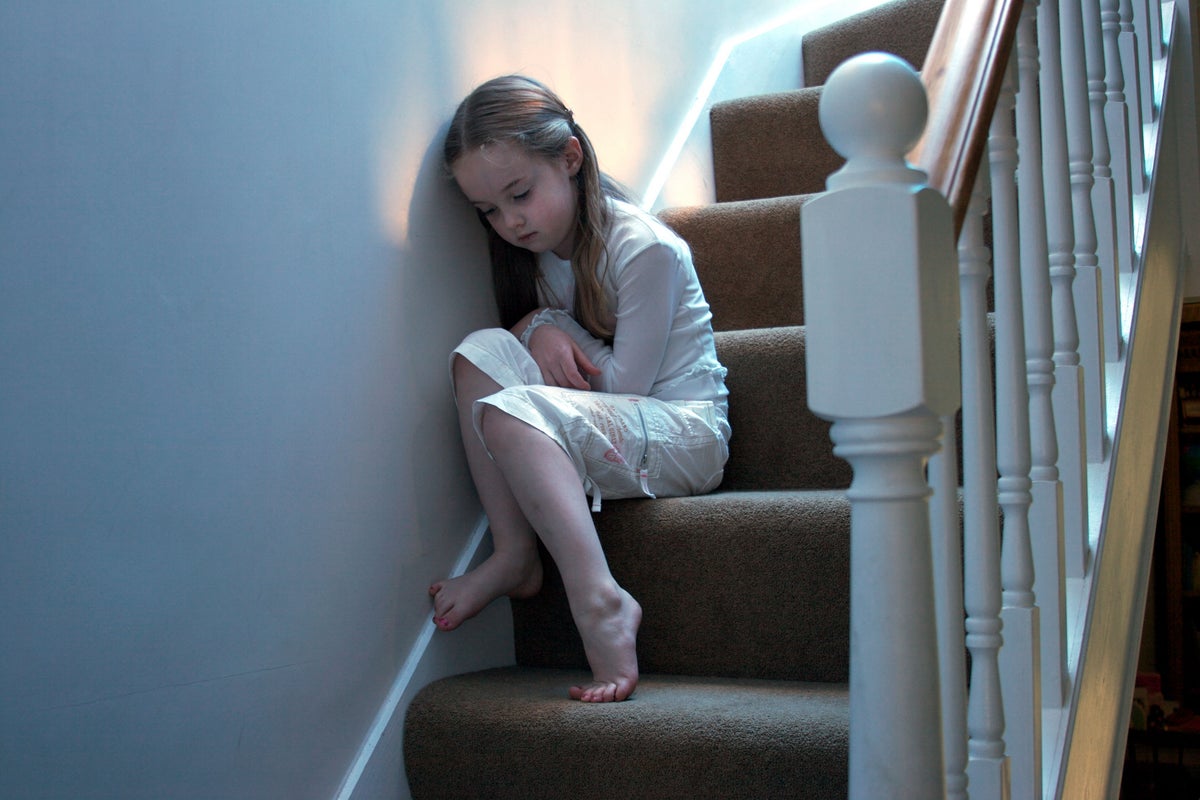Your support helps us to tell the story
From reproductive rights to climate change to Big Tech, The Independent is on the ground when the story is developing. Whether it’s investigating the financials of Elon Musk’s pro-Trump PAC or producing our latest documentary, ‘The A Word’, which shines a light on the American women fighting for reproductive rights, we know how important it is to parse out the facts from the messaging.
At such a critical moment in US history, we need reporters on the ground. Your donation allows us to keep sending journalists to speak to both sides of the story.
The Independent is trusted by Americans across the entire political spectrum. And unlike many other quality news outlets, we choose not to lock Americans out of our reporting and analysis with paywalls. We believe quality journalism should be available to everyone, paid for by those who can afford it.
Your support makes all the difference.Read more
Verbal abuse of children could be as damaging to their mental health in adulthood as physical abuse, researchers have found.
A study of more than 20,000 adults in England and Wales found that people exposed to verbal abuse in childhood were likely to feel disconnected, pessimistic, and emotionally unwell in later life.
Adults who were physically abused as children had a 52 per cent higher chance of experiencing low mental wellbeing, and this stood at around 64 per cent for those who had been subjected to solely verbal abuse.
Being exposed to both types of abuse compounded the risk even further, at 115 per cent higher, the study led by Liverpool John Moores University found.
While verbal abuse did show as having a marginally higher impact in this study, the researchers said the difference was not statistically significant and that further studies would be needed perhaps with a larger sample size to confirm the validity of the difference.
Lead author, Professor Mark Bellis, who is director of research and innovation at the university, said: “Our research shows that verbal abuse in childhood may inflict mental health scars as deep and enduring as those caused by physical abuse. Important progress has been made in reducing physical abuse, but verbal abuse is often overlooked.”
 Adults who were verbally abused as children had a 64 per cent higher chance of experiencing low mental wellbeing in adulthood (Jon Challicom/ChildLine/PA Wire)
Adults who were verbally abused as children had a 64 per cent higher chance of experiencing low mental wellbeing in adulthood (Jon Challicom/ChildLine/PA Wire)
The study, published in the BMJ Open, also suggested the prevalence of verbal abuse has risen in recent decades “eroding the long-term mental health benefits we should see from reducing physical abuse”.
The authors worked alongside Bangor University and Public Health Wales to pool data from seven relevant studies, involving 20,687 adults from England and Wales and looking at birth cohorts from the 1950s onwards.
They found that the prevalence of child physical abuse halved from around 20 per cent among those born between 1950 and 1979 to 10 per cent among those born in 2000 or later.
But when it came to verbal abuse, the prevalence rose from 12 per cent among those born before 1950 to around 20% among those born in 2000 or later.
The researchers said an estimated one in six children endure physical abuse, primarily from family members and caregivers, but one in three are subjected to verbal abuse.
Jessica Bondy, founder of Words Matter, an organisation focused on ending childhood verbal abuse by adults said: “This study confirms what survivors and professionals have long known: words can wound deeply and have a lasting impact on a child’s mental health and development. We all get overloaded sometimes, but too many adults are turning to harsh words without realising the lasting damage they cause to children.
“Any gains made in reducing physical abuse risk being undone by rising rates of verbal abuse. We must act now to confront the lasting harm caused by cruel, critical or controlling language. We need to build children up – not knock them down. The mental health of the next generation and our shared future depend on it.”

